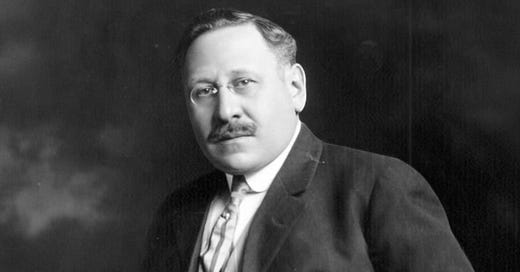Julius Rosenwald, a man whose name might not resonate as loudly as Carnegie or Rockefeller, stands as one of the most transformative philanthropists in American history.
As the co-founder of Sears, Roebuck & Company, Rosenwald leveraged his immense wealth not for personal aggrandizement, but to champion education and equity for Black communities during an era marked by systemic racism and segregation.
His efforts redefined what it means to use privilege for the public good, leaving a legacy that continues to inspire.
The Life of Julius Rosenwald: A Remarkable Evolution
Born in 1862 to Jewish immigrant parents in Springfield, Illinois, Rosenwald grew up during the throes of the Civil War. His upbringing was modest, one where his father ran a small clothing store, instilling in him values of hard work and humility. These traits would later shape Rosenwald’s philosophy on wealth and its responsibility.
Rosenwald’s career took off when he became a partner in Sears, Roebuck & Co. in the late 19th century. By the early 1900s, he had turned the mail-order retail business into one of the largest and most influential companies in America. Yet, what set Rosenwald apart was his recognition that wealth carried an obligation to address social inequalities.
Inspired by the work of Booker T. Washington and galvanized by his own Jewish identity, shaped by empathy for marginalized communities, Rosenwald began what would become a groundbreaking partnership with Black America.
Philanthropy with Purpose: The Rosenwald Schools
At the heart of Rosenwald’s philanthropy was his funding of over 5,000 schools for Black children in the segregated South between 1917 and 1932. These “Rosenwald Schools” became lifelines for Black communities denied access to quality education under Jim Crow.
This model was innovative in the sense that Rosenwald required local communities to contribute funds or labor toward building the schools, fostering a sense of ownership and collective investment.
The impact was profound. By the mid-20th century, one in three Black children in the South had attended a Rosenwald School. Alumni included luminaries like Maya Angelou and John Lewis, who credited these institutions with shaping their futures.
Rosenwald’s approach to philanthropy was pragmatic and forward-thinking. He disbursed his funds while alive, ensuring they were used where most needed. He avoided paternalism, collaborating directly with Black leaders and communities to determine how best to allocate resources.
Books that Illuminate Rosenwald’s Legacy
For those seeking a deeper understanding of Julius Rosenwald’s contributions to Black history, three books provide invaluable insights
You Need a Schoolhouse: Booker T. Washington, Julius Rosenwald, and the Building of Schools for the Segregated South by Stephanie Deutsch
This compelling book explores the unique partnership between Rosenwald and Booker T. Washington, illustrating how their collaboration transformed educational opportunities for Black children. It sheds light on Rosenwald’s philosophy of mutual investment and the larger socio-political context of his work.
The Rosenwald Schools of the American South by Mary S. Hoffschwelle
A detailed historical account of the Rosenwald Schools, this book examines their construction, operation, and lasting impact on Black education. Hoffschwelle highlights the schools as a symbol of resilience and community empowerment.
A Legacy of Unfinished Work
Julius Rosenwald died in 1932, but his contributions remain a testament to the power of philanthropy grounded in humility and partnership. His work is a reminder that systemic change requires both resources and a commitment to listening to the voices of those directly affected.
At a time when inequities in education persist, Rosenwald’s legacy challenges us to reflect on how wealth and privilege can be wielded for transformative good.
By revisiting Rosenwald’s life and contributions, we honor a man who not only recognized the disparities of his time but acted boldly to bridge them—an enduring lesson in what it means to uplift humanity.
We Invite You to Join “Black Books + Black Minds.”
As a supporting member of "Black Books, Black Minds," you'll provide much needed resources for me to continue to dive deeper into a world where your reading passions around Black History thrive.
For just $6 a month or $60 a year, you unlock exclusive access to a close-knit community eager to explore groundbreaking authors and books.
So join us today. Your participation and support are welcomed and appreciated.







